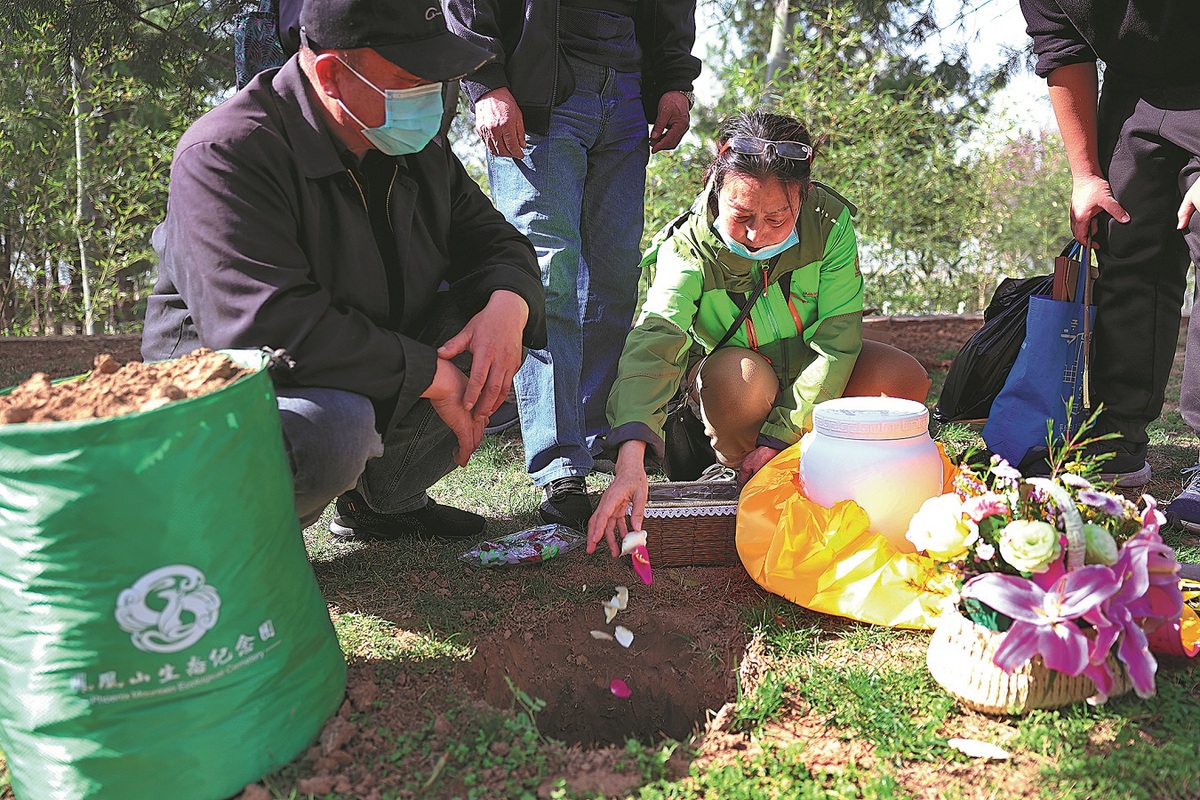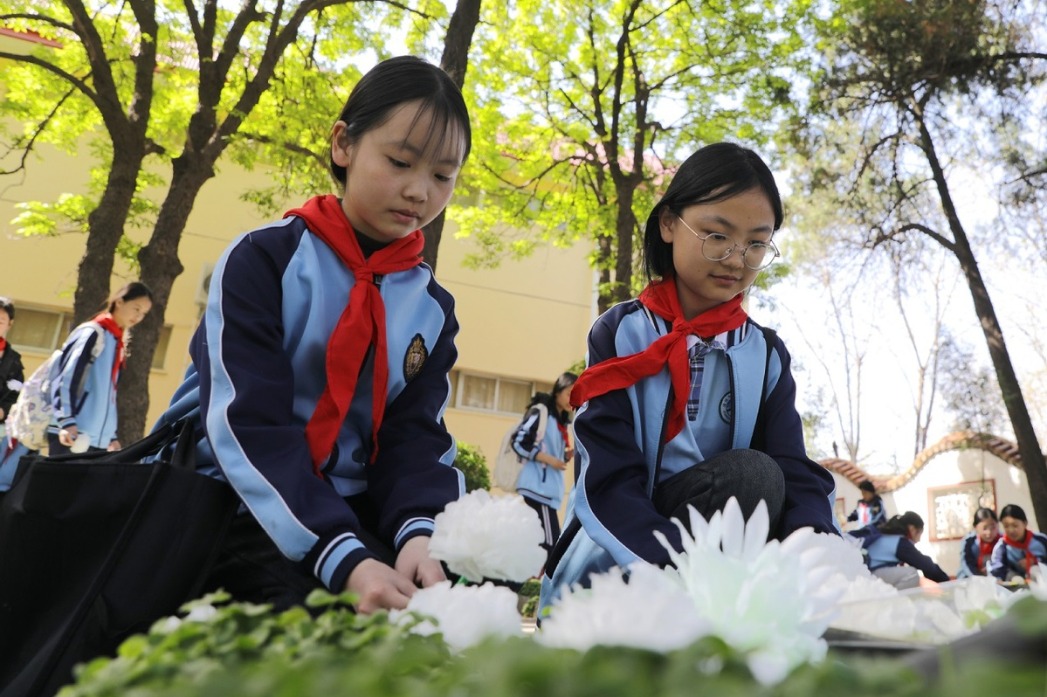Eco-burials take root in funeral industry
Relatives opt for tree and sea final services as traditions change


Returning to nature
In recent years, China has been promoting eco-burials, with many regions introducing public benefit policies. With a change in attitudes toward life and death, an increasing number of people are choosing green methods such as sea and tree burials. Returning to nature has become a new trend in funeral practices.
At the Phoenix Mountain memorial park, each urn is crafted from biodegradable materials designed to dissolve over three to five years, allowing the ashes to integrate naturally with the soil and the burial plot to be reused.
The park is home to over 20 white pines and 100 golden osmanthus trees. "Pines symbolize enduring life. Osmanthus trees bloom with a sweet fragrance every year, as if those who rest here are still contributing to the environment," Cui said.
Each tree accommodates up to eight urns, and families can locate their loved ones via a meticulously maintained memorial wall. "If family members want to visit, they can find the exact tree where their loved one rests," Cui said.
"In a culture where burial traditions run deep, the gentle accommodation matters," he said.
At first, only a handful of families participated, Cui recalled. "Now, we see more families actively inquiring about it, especially among well-educated older adults who see tree burial as a meaningful final contribution to society," he said.
In the past, some elderly people with no descendants had opted for free eco-burials because they didn't need a place for family visits and the service was not an economic burden. "But more families are choosing this because they genuinely believe in the values it represents," Cui said.
Traditionally, Chinese culture has emphasized large, grand tombs as signs of filial piety. But this idea has gradually changed as people realized that love and respect are not measured in square meters. "Families are starting to see that commemoration is about memory, not monuments," Cui said.
He recounted the case of a woman who donated her body for medical research and had her ashes laid to rest beneath a tree. "She and her husband made an agreement before she passed," Cui said, adding that her children have since expressed a wish to follow in her footsteps.
Younger generations no longer see death and funeral rites as bad luck or filled with fear, nor do they avoid talking about the issue, especially in big cities such as Beijing, Shanghai, and Guangzhou, Guangdong province, Cui said.
Residents with household registration in Beijing who choose sea or natural burials for cremated remains can use six free funeral services provided by funeral homes in the city, according to a circular recently released by the Beijing Municipal Civil Affairs Bureau. The services are: body grooming, refrigeration, transportation, a farewell ceremony, cremation and temporary ashes storage.
For those who choose a natural burial, the government provides a subsidy of 4,000 yuan ($550) per set of ashes to service providers to cover biodegradable urns, farewell ceremonies, and burial ceremonies for the deceased, it added.























